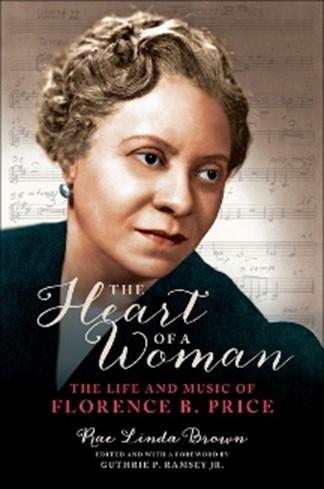More opera
At the beginning of 2022, I resolved to be more of an opera nerd. I knew this resolution would take more than a single year to fulfill, as it involves listening thoughtfully and undistractedly to 242 operas — specifically, the operas featured on WETA VivaLaVoce.
This continues to be a thrilling adventure.
The numerical aspect of my journey in 2023 hasn’t been quite what I hoped for. When I listen to an opera, I really want to set aside everything else and just listen — with a translation of the libretto in hand, of course. And I really want to listen to an opera in its entirety all at once. This necessitates having two or three uninterrupted hours of sustained attention. In 2023, I managed to give about two dozen operas a careful hearing. These included more than one recording apiece of the Big Three of Mozart’s operas (Le nozze di Figaro, Don Giovanni and Die Zauberflöte), as well as Così fan tutte and his last Italian opera, La clemenza di Tito. I also had the opportunity to explore a 1957 recording of Maria Callas in an Italian translation of Luigi Cherubini’s Médée; a 2019 album of René Jacobs conducting Leonore, an earlier (and, in many places, substantially different) version of Beethoven’s only completed opera, Fidelio; the work for which Gaspare Spontini (1774-1851) is best remembered, La Vestale; and what a fascinating and enthralling experience to listen to a succession of Rossini operas, from La Pietra del Paragone to an astonishing 1983 recording of Marilyn Horne in Tancredi, up to the immortal Barbiere di Siviglia.
I am looking forward to giving these albums, and quite a few others, a thorough and reverent hearing in ’24.
Donizetti: Anna Bolena (1957 - Milan) - Callas Live Remastered
More Haydn
I have always loved Joseph Haydn’s music, but ever since John Banther and I had a conversation about him for a Classical Breakdown episode, my reverence and zeal for this titan among European composers has grown into a passion.
Of course, exploring the works of this colossal genius is a daunting task: aside from his monumental consequence — the soubriquets “father of the string quartet” and “father of the symphony” are, at worst, slight oversimplifications of his towering significance — Haydn lived a long life (1732-1809), during which he was dazzlingly prolific. How can one get to know his enormous body of work?
In 2024, I intend to take a deeper dive into his symphonies, and in doing so, I will also be exploring the evolution of performance practice over the past half century.
Four conductor/orchestra pairings have recorded all of Haydn’s symphonies:
- Ernst Märzendorfer with the Vienna Chamber Orchestra, completed in 1971;
- Antal Doráti and the Philharmonia Hungarica completed their cycle in 1972;
- Ádám Fischer and the Austro-Hungarian Haydn Orchestra took fourteen years to finish their set, the last of which was recorded in 2001;
- Dennis Russell Davies and the Stuttgart Chamber Orchestra finished their work on the complete Haydn symphonies in 2009.
I have learned over the years that I am one of those people who benefit from breaking down a huge task into smaller pieces spread out over time, such as in my year-long (2017) self-guided study of the Bhagavad Gita and some of the commentaries written about it over the centuries. The Gita consists of 700 verses, so each day that year I read two verses and eight commentaries on those two verses. It was an immensely rewarding year.
Applying that same principle to four different recordings of Haydn’s symphonies, it would take just over a year to listen to all of them if I attended to just one symphony per day. And a practical advantage this enterprise has over the opera nerding is that the longest of Haydn’s symphonies are somewhere around a half hour. (My Haydn-symphonic nerding will no doubt be frequently accompanied by my following along with scores that I find on IMSLP.) Challenging, but do-able.
Here are the four different conductors/orchestras performing one of my favorite moments in Haydn: the finale of the Symphony No. 101 (nicknamed “the Clock” for the tick-tocking lilt of its second movement), one of the symphonies Hadyn composed during his second visit to London in 1794-95. Hear how different they are! Tempo, phrasing, articulation, tone… so many different ways to interpret a masterpiece like this. It’s almost like hearing four different pieces.
More reading
So much to read, so little time. There are quite a few books I want to read but haven’t yet, including two that came out in 2023. My resolution for 2024 is to include these three in my reading:
The Heart of a Woman: The Life and Music of Florence B. Price
Rae Linda Brown
Rae Linda Brown, arguably the most dedicated and consequential musicologist to study and explore the music of American composer Florence Price (1887-1953), wrote her doctoral dissertation on Price in the late ’80s and completed the first comprehensive biography of the composer just before her death in 2017. One of my favorite selections on WETA Classical is the GRAMMY-winning 2022 album by Yannick Nézet-Séguin and the Philadelphia Orchestra of Price’s First and Third Symphonies, and a concert highlight for me in ’23 was the performance by Rachel Barton Pine with the Fairfax Symphony of Price’s Violin Concerto No. 2.
Quartet: How Four Women Changed the Musical World
Leah Broad
British musicologist Leah Broad wrote this work about the contributions of Ethel Smyth, Rebecca Clarke, Dorothy Howell and Doreen Carwithen.
Becoming a Composer
Errollyn Wallen
I wish our WETA Classical listeners and supporters good health, good thoughts, good feelings, good experiences, good reading and good listening in 2024.
PBS PASSPORT
Stream tens of thousands of hours of your PBS and local favorites with WETA+ and PBS Passport whenever and wherever you want. Catch up on a single episode or binge-watch full seasons before they air on TV.
